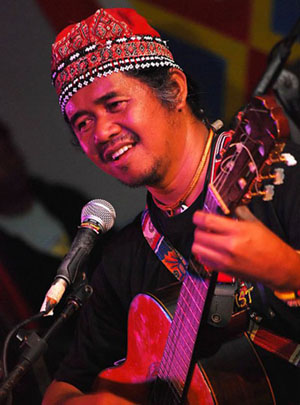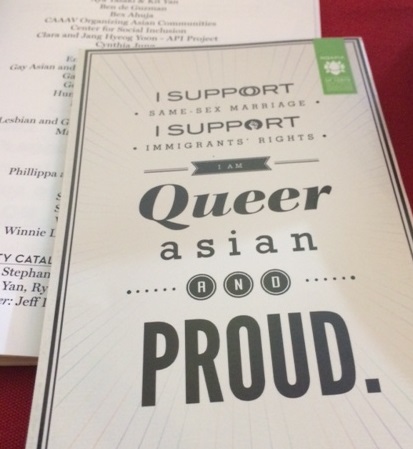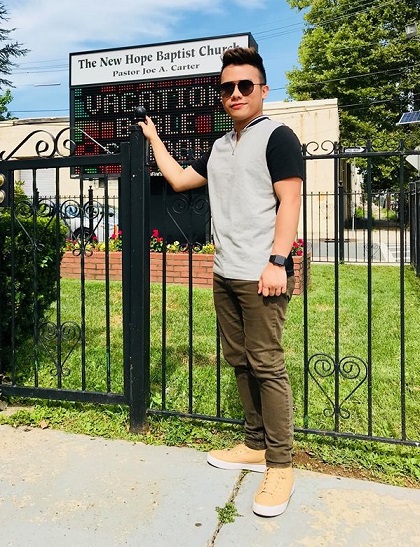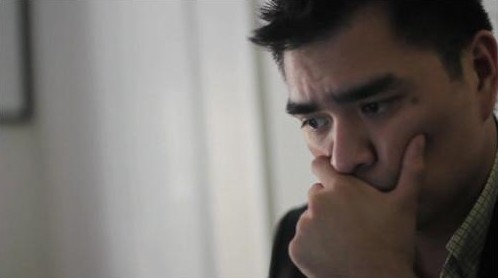‘I didn’t expect all this attention’
By Odette Keeley & Anthony Advincula
Pulitzer Prize-winning journalist Jose Antonio Vargas sits down with NAM to discuss his coming-out as an undocumented immigrant and his plans to use his story to spark an honest conversation about immigration in America.
When he was growing up in the Philippines, Pulitzer Prize-winning journalist Jose Antonio Vargas’ early ideas of America were formed by the remittances and goods his grandparents sent from California.
“I remember those balikbayan boxes [from America] that we would get every two months–the money we received, the M&Ms, shirts and shoes,” the controversial journalist said in an interview earlier this week.
Speaking at his well-kept apartment near New York’s West Village, Vargas, 30, recounted how his mother told him he was going to live with his grandparents in America someday. His mother’s hope for her son’s future was at the eye of the storm surrounding Vargas. In a personal essay that appeared in last Sunday’s New York Times Magazine, the journalist revealed that he does not have a legal status in the United States.
Vargas recounted that he used to read aloud the label “Made in USA,” stamped in bold letters on each product from America. “I would read it like, ‘Ma-de in U-S-A,’” he said, pronouncing each syllable. Noting that the word ‘usa,’ in his native Tagalog, means “deer,” he added, “I’d think that was hilarious.”
He lamented that without help from his grandparents, life would have been economically difficult for his mother and siblings during those times. His father left them when he was 3.
“My Lolo [Grandpa] and Lola [Grandma] were our support-system,” he said.
Flying to America
When he was just a boy of 12 and at a Manila airport, finally leaving for the United States, he was unaware of the abstract legal issue of immigration status.
“I knew I was going to America, but I never thought what it meant,” he said. “All I could remember was that I was so excited stepping into the airplane for the first time.” He vividly remembers such details of that journey as a flight attendant’s face and his excitement when the airplane lifted off toward a new land.
In the New York Times Magazine article, Vargas wrote how a “coyote”–hired by his family but who he thought was an uncle—smuggled him into the United States.
Years passed before Vargas knew he wasn’t in this country legally. By then the smart and ambitious youth had become firmly American, and his Filipino identity mostly mingled with distant childhood memories—playing with his cousins by the water on visits to Iba, Zambales, along the South China Sea, riding tricycles, and eating mangoes with salt, fish with vinegar, and rice right off banana leaves,” he said.
But Vargas says his memories of his native land are hazy. Even when he spoke with his mother for the New York Times article, he could not clearly recall much that she mentioned. “I was just 12 when I left,” he said.
The prospect of returning to the Philippines for 10 years before he could apply for legal immigration status back to the United States seemed unthinkable.
Pursuing his dream of becoming a journalist in his early 20s, Vargas obtained a fake green card and falsely claimed he was a U.S. citizen. Along the way, editors at the San Francisco Chronicle, Philadelphia Daily News and Washington Post helped the talented young reporter work his way up the newsroom career ladder. In 2008, he earned a Pulitzer Prize while at the Washington Post for his coverage of the Virginia Tech shootings.
Becoming unemployable
Now that he has come out as being undocumented–although he thought about the risk of being arrested or deported—Vargas, who also admitted that he had stopped blogging for the Huffington Post, finds himself mostly concerned about something immediate: his bottom line. Companies are unlikely to hire him, despite his exemplary career.
“I’ve been living off my savings, which will be depleted pretty soon,” he said. “But, thankfully, there have been some donors who have been helping out for the Define American campaign.”
Define American, according to its website, is a project of the nonprofit Tides Center to bring new voices into immigration conversations.
Yet Vargas said that he is still trying to figure out how he will survive in the coming days — and pay his taxes “so people would not think that I’m mooching up the system.”
Through Define American, Vargas, who is also openly gay, devotes his talents to pushing for the DREAM Act and comprehensive immigration reform. The Define American campaign, he added, has been funded by anonymous donors from the San Francisco Bay Area, where he grew up and began his journalism career.
Many media outlets have been skeptical about the purpose of his revelations in the New York Times article, but he insists he did not write the piece for selfish reasons. Although he said he was aware that the article would open him to media criticism—“but I didn’t expect all this attention.”
For the full story and video, go to the NAM website.
Odette Keeley is host and executive producer of New America Now, NAM’s TV show, as well as anchor for NAM segments on “Upside” – both airing on Comcast Hometown Network – CHN 104 & Comcast on Demand. Anthony Advincula is NAM’s New York-based editor.












Your Filipino magazine has one of the freshest themes I’ve came across. Keep it up.
I believe he’s appearing on Colbert tonight.
Because of people like him, his mother, and his grandparents, legitimate Filipino visa applicants get under hell of a scrutiny and get their visa denied (and does not get refunded for the fees they’ve paid!).
And now, he wants amnesty? Maybe, Mr. Vargas should go look at the Filipinos patiently waiting in the US Embassy without any complaints
It must have been hard for Vargas to come to this decision, alienating him from his family and also his community.
I think Vargas is not only one who faces this problem. He is just the one who shares it on media…
I hope Vargas succeeds in his goal.